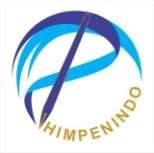Ketersediaan Nitrogen pada Ultisol dengan Aplikasi Kotoran Walet dan Arang Kayu
Abstract
The application of organic matter with a high nitrogen (N) content in combination with the application of wood charcoal is a common soil fertility management practice in Ultisols. This study aims to determine the availability of N in Ultisols, which are applied to swallow droppings and wood charcoal. The experimental design used was a two-factor Completely Randomized Design (CRD), with the first factor being swallow droppings (0.5 and 10 t ha−1) and the second factor being wood charcoal (0, 10, and 20 t ha−1), with as many as three repetitions. As much as 200 g of soil was put into the incubation site, then swallow droppings and wood charcoal were added according to the treatment, stirred until evenly distributed, and then incubated at 70% field capacity for 14 days. The contents of NH4+, NO3-, and pH were observed at the end of the incubation period. The results showed that the application of swallow droppings and wood charcoal increased the content of NH4+, NO3-, and mineral N but lowered soil pH. The best treatment was given to swallow manure at 10 t ha-1 which increased mineral N by 59%, and a combination of swallow manure 10 t ha-1+10 t ha-1 wood charcoal which increased nitrate content by 1,666%. The results of this study indicate that the application of swallow droppings combined with wood charcoal can increase the availability of N in Ultisols.
References
Agegnehu, G., Bass, A.M., Nelson, P.N., Muirhead, B., Wright, G., Bird, M.I. 2015. Biochar and biochar-compost as soil amendments: Effects on peanut yield, soil properties and greenhouse gas emissions in tropical North Queensland, Australia. Agriculture, Ecosystems and Environment 213, 72–85. https://doi.org/10.1016/j.agee.2015.07.027
Alfionita, R., Paranoan, R.R., Kesumaningwati, R. 2018. Pemberian bokashi kotoran walet terhadap beberapa sifat kimia tanah dan pertumbuhan serta hasil tanaman cabai merah (Capsicum annum L.) Agroekoteknologi Tropika Lembab 1, 43–52. http://dx.doi.org/10.35941/jatl.1.1.2018.1587.43-52
Bolan, S., Hou, D., Wang, L., Hale, L., Egamberdieva, D., Tammeorg, P., Li, R., Wang, B., Xu, J., Wang, T., Sun, H., Padhye, L.P., Wang, H., Siddique, K.H.M., Rinklebe, J., Kirkham, M.B., Bolan, N. 2023. The potential of biochar as a microbial carrier for agricultural and environmental applications. Science of The Total Environment 886, 163968. https://doi.org/10.1016/j.scitotenv.2023.163968
Cha, J.S., Park, S.H., Jung, S.C., Ryu, C., Jeon, J.K., Shin, M.C., Park, Y.K. 2016. Production and utilization of biochar: A review. Journal of Industrial and Engineering Chemistry 40, 1-15. https://doi.org/10.1016/j.jiec.2016.06.002
Ding, Y., Liu, Y., Liu, S., Li, Z., Tan, X., Huang, X., Zeng, G., Zhou, L., Zheng, B. 2016. Biochar to improve soil fertility. A review. Agron. Sustain. Dev. 36, 36. https://doi.org/10.1007/s13593-016-0372-z
Hariyadi. 2012. Aplikasi Takaran Guano Walet sebagai Amelioran dengan Interval Waktu Pemberian terhadap Pertumbuhan dan Hasil Cabai Rawit (Capsicum Frutescens L.) pada Tanah Gambut Pedalaman. Skripsi. Universitas Lambung Mangkurat, Banjarbaru.
Hossain, M.Z., Bahar, M.M., Sarkar, B., Donne, S.W., Ok. Y.S., Palansooriya, K.N., Kirkham, M.B., Chowdhury, S., Bolan, N. 2020. Biochar and its importance on nutrient dynamics in soil and plant. Biochar 2, 379–420. https://doi.org/10.1007/s42773-020-00065-z
Ifansyah, H. 2008. Prosedur Analisa Tanah Jaringan Tanaman dan Pupuk. Fakultas Pertanian Universitas Lambung Mangkurat, Banjarbaru.
Jayadi, M., Rismaneswati., Majid, S.A. 2023. Availability of phosphorus in Ultisols by applying compost and phosphate rock. Anjoro: International Journal of Agriculture and Business 4(1), 21-28. https://doi.org/10.31605/anjoro.v4i1.2278
Johan, P.D., Ahmed, O.H., Omar, L., Hasbullah, N.A. 2021. Phosphorus transformation in soils following co-application of charcoal and wood ash. Agronomy 11(10), 2010. https://doi.org/10.3390/agronomy11102010
Kanthle, A.K., Lenka, N.K., Lenka, S., Tedia, K. 2016. Biochar impact on nitrate leaching as influenced by native soil organic carbon in an Inceptisol of central India. Soil and Tillage Research 157(3), 65–72. https://doi.org/10.1016/j.still.2015.11.009
Kempers, A. J., Zweers, A. 1986. Ammonium determination in soil extracts by the salicylate method. Communications in Soil Science and Plant Analysis 17(7), 715–723. https://doi.org/10.1080/00103628609367745
Masunga, R.H., Uzokwe, V.N., Mlay, P.D., Odeh, I., Singh, A., Buchan, D., Neve, S.D. 2016. Nitrogen mineralization dynamics of different valuable organic amendments commonly used in agriculture. Applied Soil Ecology 101, 185-193. https://doi.org/10.1016/j.apsoil.2016.01.006
Mukherjee, A., Zimmerman, A.R. 2013. Organic carbon and nutrient release from a range of laboratory-produced biochars and biochar-soil mixtures. Geoderma 193–194, 122–130. https://doi.org/10.1016/j.geoderma.2012.10.002
Nariratih, I., Damanik, M., Sitanggang, G. 2013. Ketersediaan nitrogen pada tiga jenis tanah akibat pemberian tiga bahan organik dan serapannya pada tanaman jagung. Jurnal Online Agroekoteknologi 1(3), 479-488. https://dx.doi.org/10.32734/jaet.v1i3.2645
Nguyen, T.T.N., Xu, C.Y., Tahmasbian, I., Che, R., Xu, Z., Zhou, X., Bai, S.H. 2017. Effects of biochar on soil available inorganic nitrogen: A review and meta-analysis. Geoderma 288, 79–96. https://doi.org/10.1016/j.geoderma.2016.11.004
Ni, G., Leung, P.M., Daebeler, A., Guo, J., Hu, S., Cook, P., Nicol, G.W., Daims, H., Greening, C. 2023. Nitrification in acidic and alkaline environments. Essays Biochem 67(4), 753-768. https://doi.org/10.1042/EBC20220194
Normaulidia, N., Saidy, A.R., Yusran, F.H. 2022. Nitrogen availability in upland soil treated with swallow dropping. Acta Solum 1(1), 28-35. https://doi.org/10.20527/actasolum.v1i1.1382
Nurida, N.L., Rahman, A., Sutono, S. 2015. Biochar Pembenah Tanah Yang Potensial. IAARD Press, Jakarta.
Sarwono, R. 2016. Biochar sebagai penyimpan karbon, perbaikan sifat tanah, dan mencegah pemanasan global : Review. Jurnal Kimia Terapan Indonesia 18(1), 79–90. https://doi.org/10.14203/jkti.v18i01.44
Solaiman, Z.M., Anawar, H.M. 2015. Application of biochars for soil constraints: Challenges and solutions. Pedosphere 25(5), 631–638. https://doi.org/10.1016/S1002-0160(15)30044-8
Sujana, I.P., Pura, I.N.L.S. 2015. Pengelolaan tanah Ultisol dengan pemberian pembenah organik biochar menuju pertanian berkelanjutan. Agrimeta: Jurnal Pertanian Berbasis Keseimbangan Ekosistem 5(9), 1–9.
Syifa, M., Ifansyah, H., Fachruzi, I. 2023. Pengaruh aplikasi biokom, coal fly-ash, dan fungi pelarut P terhadap beberapa sifat kimia pada tanah gambut yang ditanami tanaman jagung (Zea mays). Acta Solum 1(3), 101-110. https://doi.org/10.20527/actasolum.v1i3.2264
Wang, C., Luo, D., Zhang, X., Huang, R., Cao, Y., Liu, G., Zhang, Y., Wang, H. 2022. Biochar-based slow-release of fertilizers for sustainable agriculture: A mini review. Environmental Science and Ecotechnology 10, 100167. https://doi.org/10.1016/j.ese.2022.100167
Yang, J. E., Skogley, E. O., Schaff, B. E., Kirn, J. J., Kim, J. J., Skogley, E. G. 1998. A simple spectrophotometric determination of nitrate in water, resin, and soil extracts. Soil Science Society American Journal 62(3), 1108-1115. https://doi.org/10.2136/sssaj1998.03615995006200040036x
Zhao, H., Guo, Y., Wang, Q., Zhang, Z., Wu, C., Gao, M., Liu, F. 2022. The summary of nitritation process in mainstream wastewater treatment. Sustainability 14(24), 16453. https://doi.org/10.3390/su142416453

















